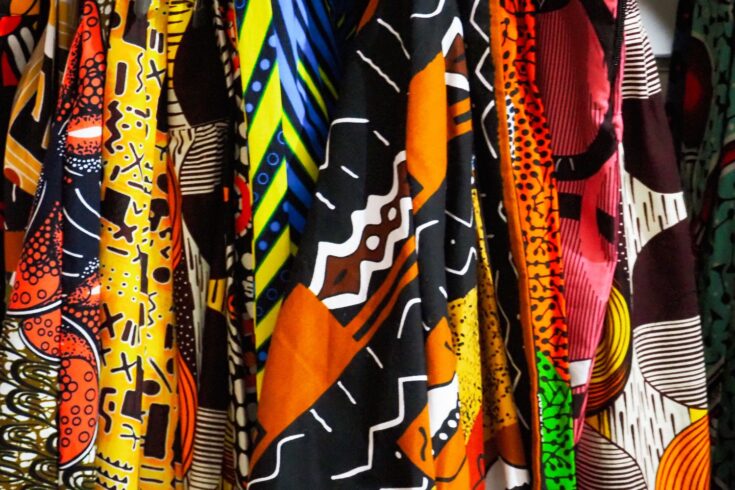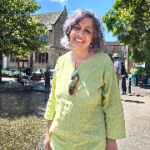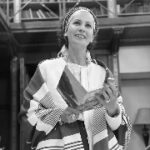Introducing SASA and BEAP
The arts and humanities offer a vibrant space of solidarity for those who are marginalised across the world. We must offer stewardship to such networks and use their insights to determine research agendas, outputs and outcomes. Such stewardship in global research can also make a significant change to the nature of Global North-South partnerships.
Two research projects, SASA (South America and Southeast Asia) and BEAP (Building Equitable African Partnerships), will run meetings with rightsholders and stakeholders – individuals, communities and organisations who can make legitimate claims and exercise their entitlements by holding states and duty-bearers to account – across Brazil, Malaysia, South Africa and Kenya.
The projects were funded via the International Science Partnerships Fund in June 2024 and will inform the Arts and Humanities Research Council’s (AHRC) programme ‘Building Equitable Futures Together’.
They will focus on topical issues and research partnerships within several key research areas: women and girls; conflict and post-conflict, humanitarian protection and modern slavery; environmental humanities; creative economy and digital humanities.
They will do so in order to focus discussions of equitable partnerships around everyday concerns of the communities.
Why are these significant?
Both SASA and BEAP build on projects addressing global challenges undertaken through the AHRC Network Plus scheme where they actively collaborated with international partners who set their research questions, methodologies and generated a range of outputs.
However, what can other schemes learn from their experiences and from that of the SASA and BEAP partners that can inform future research both within and beyond the official development assistance space? What are the key arts and humanities questions that the communities themselves want researched and what do they want their role to be in this?
AHRC is breaking new ground by taking these questions to the communities themselves as they gear up to enhance equitable research partnerships and AHRC’s support mechanisms.
The SASA project
The SASA project is led by a multidisciplinary, cross-sectors, international team across Brazil, Malaysia, and the UK.
The work of SASA is articulated in three strands. The first focuses on three research areas set out by the programme: women and girls; conflict and post-conflict, humanitarian protection and modern slavery; environmental humanities.
The second opens up spaces to learn from ground-up research agendas, and the third centres on new possibilities to design future international funding models which seek to overcome north-south systemic imbalances.
SASA mobilises local, regional and indigenous knowledges and expertise to identify priority areas, challenge current structures, and shape future funding opportunities in arts and humanities. The significance of SASA lies in its engagement with a plurality of diverse voices and its commitment to departing from extractive practices.
The project will hold workshops in Malaysia and Brazil to engage with a wide range of stakeholders – including academics, funders, civil society, civil servants, local and regional governments, community members – and facilitate comprehensive and equitable exchanges.
As such, SASA re-centres geographically, culturally and socio-economically marginal spaces at global as well as local levels. This is achieved through SASA’s decolonial approach; we leverage local knowledges and expertise through an inclusive agenda setting.
SASA focuses on social, environmental and economic challenges in Brazil and Malaysia which are of international significance: systematic rights violations against displaced and indigenous peoples and their territories; violent and discriminatory institutional practices; access to justice; and gender equality.
The themes at the heart of SASA map onto the UK’s International Science Partnership Fund’s priorities and relate to target Sustainable Development Goals for Brazil and Malaysia.
In undertaking this ambitious programme, SASA provides a timely intervention that harnesses important opportunities to widen its impact. In 2025, Malaysia will chair the Association of Southeast Asian Nations, and Brazil will host COP30 on Climate Change, two major international and global consensus-led fora; our focus on equitable partnerships could strengthen collective identity and enhance action beyond individual participation.
The BEAP project
The BEAP project is led by partners in Kenya and South Africa and focuses on conflict and post-conflict, humanitarian protection, creative economy and women and girls. These themes intersect in multiple ways, with gender being a cross-cutting theme for conflict and creative economies.
Both countries are potential hubs for a creative economy as Africa continues to build clusters of creative industries, and both are leaders in their regions (Southern and Eastern Africa), driving significant social change and economic growth. Building capacities in the creative economy can provide alternative livelihoods and promote social cohesion, peacebuilding, and a peace economy in the aftermath of conflict in gender-equitable ways.
But what is the research content and methodology that can help to achieve these goals? That is the question BEAP seeks to answer.
The project will have three rightsholder meetings and one stakeholder meeting in each country so as to expand the number of participants. The project will focus on communities in historically disadvantaged areas of both countries so as to also bring the less heard voices within these countries into the fold.
They will be run as lekgotla, a meeting circle based on Ubuntu principles, where food and stories are shared in order to elicit ideas about partnership. We expect that the project outputs will stimulate innovation and create synergies around the strategic priorities of the rightsholders and stakeholders, giving them opportunities to interact with rightsholders and stakeholders from other themes. It will also engage representatives from the African Union and COMESA to leverage the policy aspects of the project.
What does this mean for the future of north-south research collaborations?
Both projects will ensure that local, indigenous communities mobilized through these projects will have a lasting legacy. SASA and BEAP represent a timely intervention to shape and influence research agendas for international funding through local and indigenous knowledges.
The projects will provide opportunities to critically rethink equitable partnerships, foster action-leadership and illuminate new pathways for AHRC and its future steps. There has been a lot of progress on equitable partnerships in recent years. For instance, the African Charter signed by a number of higher education organisations aims to transform the nature of research collaborations between all research partners; the UK Collaborative on Development Research has collated a set of resources to assist those genuinely trying to pursue equitable partnerships.
However, we need to make a step change if we are to level the playing field of knowledge on which the world depends. The creative knowledge that arts and humanities research fosters is a global good and we all have to protect this for future generations.




